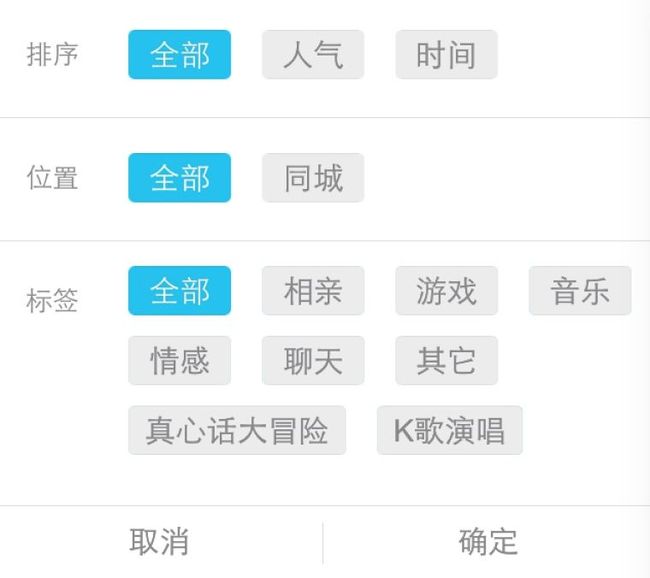- springboot+vue实现登录功能
m0_67402096
面试学习路线阿里巴巴springbootvue.jsjava开发语言mvc
一、介绍搜索了csdn全站博客,关于springboot+vue的前后端分离实践项目很多,但是对于最基础登录功能的博客却是几年前的了。于是学习了好几个大神的文章后,自己通过实践解决了vue改版等众多问题后实现了登录功能。二、环境工具vue2.0element-uiaxiosvue-routervuexJavaspring-bootvscodeidea三、搭建后端spring-boot框架1、选择S
- 2024年5月份架构师考试论文真题完整版
Zoi Gil(学习)
大数据flinkhdfshadooppython
三、论文1.关于大数据的,Lambda架构文老师押中了原题,几乎描述一致撰写关于Lambda架构的软考论文时,一个清晰且结构化的大纲是成功的关键。以下是一个简单的论文大纲示例,旨在覆盖Lambda架构的核心概念、设计原则、优缺点、实际应用案例以及对比其他架构(如Kappa架构)的分析:大纲简要介绍Lambda架构的基本概念及其在大数据处理领域的地位。概述论文的主要研究内容、目的及预期贡献。背景介绍
- Linux修改conda默认环境位置
一只积极向上的小咸鱼
linuxconda运维
#1.在终端查看conda默认环境路径condainfopackage为缓存路径,envs为虚拟环境路径。以Ubuntu系统为例,默认情况下/.conda路径排在第一位,表示默认环境安装路径。2.修改默认环境路径方法:#在对应的home/user_name下,打开condarc文件vim~/.condarc附:vim输入i进入编辑模式,输入esc退出编辑模式,输入:wq或者:wq!退出保存修改文件
- 基于YOLOv5的车牌识别系统:从数据集到UI界面的实现
深度学习&目标检测实战项目
YOLOv5实战项目YOLOui分类数据挖掘目标跟踪
1.引言随着智能交通系统的发展,车牌识别技术已成为交通管理、停车场自动化、路面监控等应用中的关键技术之一。车牌识别系统(LicensePlateRecognition,LPR)主要用于识别车辆的车牌号码,并将其转化为可以进一步处理的数据。车牌识别系统通常由图像处理、字符识别、目标检测等多种技术组成。近年来,随着深度学习技术的飞速发展,基于卷积神经网络(CNN)的目标检测算法,如YOLO(YouOn
- Find查找某个文件或者文件夹
一只积极向上的小咸鱼
linux运维服务器
在Linux中,find命令既可以查找文件,也可以查找目录。关键区别在于-type选项的不同设置:查找文件:使用-typef查找目录:使用-typed找指定名称的目录find/path/to/search-typed-name"目录名"示例:查找/home目录下名为myfolder的目录find/home-typed-name"myfolder"查找文件如果你只想在某个目录(如/home)中查找,
- HTML常用标签
花林似霰f
html前端javascript
(一)标题标签-标题标签从到一共只有6级标题文本会加粗从上到下字体逐渐减小(二)段落和换行标签1.我是一个段落标签2.在HTML中,一个段落中的文字会从左到右依次排列,直到浏览器窗口的右端,然后才自动换行。如果希望某段文本强制换行显示,就需要使用换行标签。(少有的单标签)(三)和标签和是没有语义的,可以看做是一个盒子,用来装内容的。1.标签用来布局,但是现在一行只能放一个。大盒子2.标签用来布局,
- 信号处理抽取多项滤波的数学推导与仿真
jz_ddk
信号处理python算法
昨天的《信号处理之插值、抽取与多项滤波》,已经介绍了插值抽取的多项滤率,今天详细介绍多项滤波的数学推导,并附上实战仿真代码。一、数学变换推导1.多相分解的核心思想将FIR滤波器的系数h(n)h(n)h(n)按相位分组,每组对应输入信号的不同抽样相位。通过分相、滤波、重组,实现与原FIR等效的处理。2.数学变换推导FIR滤波器的系统函数可表示为:H(z)=∑n=0N−1h(n)z−nH(z)=\su
- . HTML 中的注释和特殊字符
花林似霰f
html前端
在HTML页面中,一些特殊的符号很难或者不方便直接使用,此时我们就可以使用下面的字符来替代。最常使用为>空格 记住这三个,其它随用随查原始字符entity原始字符entity""&&''> ¡¡¢¢££¤¤¥¥¦¦§§¨¨©©ªª«&l
- LeetCode135分发糖果
liliyexing
java贪心算法leetcode
一、题目描述n个孩子站成一排。给你一个整数数组ratings表示每个孩子的评分。你需要按照以下要求,给这些孩子分发糖果:每个孩子至少分配到1个糖果。相邻两个孩子评分更高的孩子会获得更多的糖果。请你给每个孩子分发糖果,计算并返回需要准备的最少糖果数目。示例1:输入:ratings=[1,0,2]输出:5解释:你可以分别给第一个、第二个、第三个孩子分发2、1、2颗糖果。二、解题思路此题的解决方法分为两
- AFSim仿真系统—06 子系统位置、方向、回转和扫描
仿真小课堂
c++
本栏目将对《AFSim2.9中文参考手册》进行持续更新,欢迎关注交流!对本书全文和AFSIM其它资料感兴趣的伙伴,可联系作者领取~全部内容索引请看⬇️⬇️⬇️《AFSim2.9中文参考手册》-CSDN博客https://blog.csdn.net/henggesim/article/details/145566384目录概述定义标称子系统位置和方向定义回转模式和限制定义扫描模式和限制定义视场示例概
- AFSim仿真系统—12 链接更新指南
仿真小课堂
c++
本栏目将对《AFSim2.9中文参考手册》进行持续更新,欢迎关注交流!对本书全文和AFSIM其它资料感兴趣的伙伴,可联系作者领取~全部内容索引请看⬇️⬇️⬇️《AFSim2.9中文参考手册》-CSDN博客编辑https://blog.csdn.net/henggesim/article/details/145566384目录概述一般说明关于现有输入的警告旧版指挥链的使用旧版WsfGroup的使用地
- 单元测试方法及其运用
一休哥助手
软考系统架构师单元测试
引言随着软件规模和复杂度的不断提升,开发人员面临着如何保证软件质量与稳定性的挑战。单元测试作为软件测试中不可或缺的一环,能够在早期发现代码中的问题,从而提高软件的可靠性。本文将结合我参与的一个软件项目,详细介绍单元测试中的静态测试与动态测试方法,以及如何确定白盒测试的覆盖标准和组织实施回归测试。1.项目背景及个人角色在我参与的一个在线教育平台开发项目中,团队的目标是构建一个高度可扩展的课程管理和学
- 买瓜 第十四届蓝桥杯大赛软件赛省赛C/C++ 大学 A 组
Geometry Fu
蓝桥杯蓝桥杯c语言c++
买瓜题目来源第十四届蓝桥杯大赛软件赛省赛C/C++大学A组原题链接蓝桥杯买瓜https://www.lanqiao.cn/problems/3505/learning/问题描述题目描述小蓝正在一个瓜摊上买瓜。瓜摊上共有nnn个瓜,每个瓜的重量为AiA_iAi。小蓝刀功了得,他可以把任何瓜劈成完全等重的两份,不过每个瓜只能劈一刀。小蓝希望买到的瓜的重量的和恰好为mmm。请问小蓝至少要劈多少个瓜才能买
- MPV Player(MPV播放器)
fhfhgfdgdsgi1
tornado
链接:https://pan.quark.cn/s/a6b4b644bb16MPVPlayer(MPV播放器)是mplayer2和MPlayer的一个分支,支持多种视频文件格式、音频和视频编解码器以及字幕类型。它通过FFmpeg提供硬件加速,支持VDPAU和VAAPI以及Windows上的DXVA2,以及VDA和VideoToolbox视频。mpv可以播放互联网广播流、视频流、“实时”应用各种音频
- Nature:OpenAI的deep research工具对科研人员有用吗?
迪娜学姐
人工智能论文阅读论文笔记prompt
OpenAI的deepresearch工具对科研人员有用吗?它有哪些优缺点?来看看全球学术界专家的评价。科技巨头OpenAI发布了一款名为“深度研究”的付费访问工具,该工具能够将来自数十乃至数百个网站的信息综合成一份数页长的引用报告。此工具与谷歌去年12月发布的同名“深度研究”功能类似,能在短短数十分钟内完成相当于数小时的工作量。许多科学家对其撰写文献综述或整篇综述论文的能力,甚至识别知识空白的能
- 计算机组成原理与系统结构 知识点总结-简答题3【中央处理器+Flynn分类法+指令级并行+线程级并行-多处理机】
Geometry Fu
计算机组成原理与系统结构算法
中央处理器42.流水线中有哪三种冒险?请简述,并至少举出一种解决冒险的方法。结构冒险:需要的资源被占用(硬件资源冲突)。将指令和数据分别存储;设计指令/数据高速缓存。数据冒险:需要等待前面指令完成其读写操作。转发(旁路);代码重排;阻塞和冒泡。控制冒险:根据前面正在执行的指令决策控制操作。静态分支预测;动态分支预测;分支延迟。Flynn分类法43.请简述Flynn分类法将计算机系统结构分成哪四类。
- 蓝桥杯 阶乘的和(C++完整代码+详细分析)
Geometry Fu
蓝桥杯蓝桥杯c++算法
题目描述原题链接阶乘的和问题描述给定n个数Ai,问能满足m!为∑=(Ai!)的因数的最大的m是多少。其中m!表示m的阶乘,即1×2×3×⋯×m。输入格式输入的第一行包含一个整数n。第二行包含n个整数,分别表示Ai,相邻整数之间使用一个空格分隔。输出格式输出一行包含一个整数表示答案。样例输入3222样例输出3题目分析要点1:阶乘之和的因数n个不同的阶乘Ai之和的最大因数(可写成m!)即为n个阶乘中的
- 2024架构设计师论文题目
数字化信息化智能化解决方案
2024架构
论文1大数据lamda架构1、简要说明你参开发的软件项目,吸你所承担的主要作2、lamada体系架构将数据流分为批处理层(对应的英文、加速层文、服务层。简要叙这三个层次的用途和特点3、详细阐述你参与开发的软件项目如何基于lamada体系架构进行大数据处理的架构论文2模型驱动架构设计方法及其用1、简要说明你参与分析和研发的软件项目,吸你所承担的要工作2、简要阐述采用模型驱动架构思想进行软件开发的全过
- Python面试题:如何在 Python 中反转一个字符串?
超哥同学
Python系列pythonwindows开发语言面试编程
在Python中反转一个字符串有多种方法,下面详细介绍几种常用的方法,并扩展相关的知识点。方法1:使用切片Python的切片(slice)功能强大,反转字符串可以通过负步长实现。#示例original_string="hello"reversed_string=original_string[::-1]print(reversed_string)#输出:"olleh"解释:original_str
- 点云空洞的边界识别提取 pso-bp 神经网络的模型来修复点云空洞 附python代码
点云-激光雷达-Slam-三维牙齿
激光雷达点云c++为主神经网络人工智能深度学习点云python
代码是一个Python程序,用于处理3D点云数据,特别是检测和修复点云中的孔洞区域。1.**导入库**:-`numpy`:用于数学运算。-`open3d`:用于处理3D数据和可视化。-`torch`:PyTorch库,用于深度学习。-`torch.nn`和`torch.optim`:PyTorch的神经网络和优化器模块。-`mpl_toolkits.mplot3d`和`matplotlib.pyp
- 用Python实现字符串反转
程序媛了了
pythonjava前端
字符串反转代码:#第一种:最简单的切片方法defpythonit():n=input("请输入一段文本:")a=n[::-1]print(a)pythonit()#第二种:列表循环法,利用sort()函数defpython():n=input("请输入一段文本:")list=[]foriinn:list.append(i)list.sort(reverse=True)print("".join(l
- java八股文之消息中间件
Rverdoser
linqc#
org.apache.kafkakafka-clients3.0.02.创建生产者生产者(Producer)是发送消息到Kafka的一个客户端。以下是一个简单的生产者示例:importorg.apache.kafka.clients.producer.KafkaProducer;importorg.apache.kafka.clients.producer.ProducerRecord;impor
- Python深度学习033:Python、PyTorch、CUDA和显卡驱动之间的关系
若北辰
Python深度学习python深度学习pytorch
Python、PyTorch、CUDA和显卡驱动之间的关系相当紧密,它们共同构成了一个能够执行深度学习模型的高效计算环境。下面是它们之间关系的简要概述:PythonPython是一种编程语言,广泛用于科学计算、数据分析和机器学习。它是开发和运行PyTorch代码的基础环境。PyTorchPyTorch是一个开源的机器学习库,用于应用如自然语言处理和计算机视觉的深度学习模型。它提供了丰富的API,使
- 基于CATIA VBA与Python的自动化音乐生成技术对比研究
Python×CATIA工业智造
python开发语言CATIA二次开发
在工程软件二次开发领域,CATIA也可以许多另类的玩法。通过CATIA自带的VBA可以演奏歌曲,但实际效果往往差强人意。为了进一步优化实际演奏效果,本文以自动生成林宥嘉《说谎》钢琴前奏旋律为案例,探讨两种语言在多媒体控制领域的技术实现差异。一、CATIAVBA实现:极简音频方案1.1技术原理PrivateDeclarePtrSafeFunctionBeepLib"kernel32"(ByValdw
- Python实现数据结构与算法——反转字符串
Mantana
数据结构与算法字符串算法数据结构递归法
题目描述:编写一个函数,其作用是将输入的字符串反转过来。输入字符串以字符数组char[]的形式给出。不要给另外的数组分配额外的空间,你必须原地修改输入数组、使用O(1)的额外空间解决这一问题。你可以假设数组中的所有字符都是ASCII码表中的可打印字符。示例1:输入:["h","e","l","l","o"]输出:["o","l","l","e","h"]示例2:输入:["H","a"
- 【脑洞小剧场】零帧起手创业小公司之 第一次用户反馈
Foyo Designer
技术职场小剧职场和发展程序人生学习方法改行学it程序员创富
点击查看小剧场合集https://blog.csdn.net/foyodesigner/category_12896948.html阳光透过窗帘的缝隙,懒洋洋地洒在办公室的每一个角落,却似乎无法驱散产品经理程立新心头的阴霾。他坐在电脑前,眼神空洞地盯着屏幕,心里五味杂陈。昨天项目匆匆上线,本以为会是公司迈向成功的一大步,没想到今天一早就迎来了用户的“狂轰滥炸”。场景一:产品经理的“差评风暴”“这…
- static关键字
直面秃头恐惧
Javajava
1.含义static的英文本义是静态的,在java语法中,static既可以修饰成员变量又可以修饰成员方法。被static修饰的成员变量叫作静态成员变量,被static修饰的方法叫作静态成员方法。需要注意的是,在Java中,静态成员(类成员)不属于某个具体的对象,可以被类的所有对象共享(访问、修改)。2.使用2.1static修饰成员变量被static修饰的成员,储存在方法区当中,它的生命周期伴随
- 单片机的历史与发展
二年级程序员
单片机嵌入式硬件
单片机(MCU)的发展历程贯穿了从微型计算机雏形到高度集成化智能芯片的技术演进,其历史可分为以下关键阶段:一、萌芽与探索(1971-1976)这是一个从微处理器到单片机的阶段。1971年,Intel推出全球首款4位微处理器4004,虽非完整单片机,却开启了微型化计算的先河。1976年,Intel发布MCS-48系列单片机,首次将8位CPU、RAM、ROM(1KB)、I/O接口集成于单芯片,标志着世
- 【SpringBoot】实现登录功能
一只爱打拳的程序猿
SpringMyBatisHTML5+CSSspringbootmybatisjavascripthtml5css
在上一篇博客中,我们讲解了注册页面的实现。在此基础上会跳转到登录页面,今天给大家带来的是使用SpringBoot,MyBatis,Html,CSS,JavaScript,前后端交互实现一个登录功能。目录一、效果二、源码2.1前端2.2后端一、效果用户名和密码栏输入空或没有值时,提示错误。在数据库中有以下信息,任意挑选一条信息进行登录操作。输入用户lisi,123后登陆成功跳转到个人列表。二、源码2
- 【系统架构设计师】2024年上半年真题论文: 论大数据lambda架构(包括解题思路和素材)
数据知道
系统架构架构系统架构设计师软考高级论文
更多内容请见:备考系统架构设计师-专栏介绍和目录文章目录真题题目(2024年上半年试题1)解题思路论文素材参考真题题目(2024年上半年试题1)大数据处理架构是专门用于处理和分析巨量复杂数据集的软件架构。它通常包括数据收集、存储、处理、分析和可视化等多个层面,旨在从海量、多样化的数据中提取有价值的信息。Lambda架构是大数据平台里最成熟、最稳定的架构,它是一种将批处理和流处理结合起来的大数据处理
- JAVA基础
灵静志远
位运算加载Date字符串池覆盖
一、类的初始化顺序
1 (静态变量,静态代码块)-->(变量,初始化块)--> 构造器
同一括号里的,根据它们在程序中的顺序来决定。上面所述是同一类中。如果是继承的情况,那就在父类到子类交替初始化。
二、String
1 String a = "abc";
JAVA虚拟机首先在字符串池中查找是否已经存在了值为"abc"的对象,根
- keepalived实现redis主从高可用
bylijinnan
redis
方案说明
两台机器(称为A和B),以统一的VIP对外提供服务
1.正常情况下,A和B都启动,B会把A的数据同步过来(B is slave of A)
2.当A挂了后,VIP漂移到B;B的keepalived 通知redis 执行:slaveof no one,由B提供服务
3.当A起来后,VIP不切换,仍在B上面;而A的keepalived 通知redis 执行slaveof B,开始
- java文件操作大全
0624chenhong
java
最近在博客园看到一篇比较全面的文件操作文章,转过来留着。
http://www.cnblogs.com/zhuocheng/archive/2011/12/12/2285290.html
转自http://blog.sina.com.cn/s/blog_4a9f789a0100ik3p.html
一.获得控制台用户输入的信息
&nbs
- android学习任务
不懂事的小屁孩
工作
任务
完成情况 搞清楚带箭头的pupupwindows和不带的使用 已完成 熟练使用pupupwindows和alertdialog,并搞清楚两者的区别 已完成 熟练使用android的线程handler,并敲示例代码 进行中 了解游戏2048的流程,并完成其代码工作 进行中-差几个actionbar 研究一下android的动画效果,写一个实例 已完成 复习fragem
- zoom.js
换个号韩国红果果
oom
它的基于bootstrap 的
https://raw.github.com/twbs/bootstrap/master/js/transition.js transition.js模块引用顺序
<link rel="stylesheet" href="style/zoom.css">
<script src=&q
- 详解Oracle云操作系统Solaris 11.2
蓝儿唯美
Solaris
当Oracle发布Solaris 11时,它将自己的操作系统称为第一个面向云的操作系统。Oracle在发布Solaris 11.2时继续它以云为中心的基调。但是,这些说法没有告诉我们为什么Solaris是配得上云的。幸好,我们不需要等太久。Solaris11.2有4个重要的技术可以在一个有效的云实现中发挥重要作用:OpenStack、内核域、统一存档(UA)和弹性虚拟交换(EVS)。
- spring学习——springmvc(一)
a-john
springMVC
Spring MVC基于模型-视图-控制器(Model-View-Controller,MVC)实现,能够帮助我们构建像Spring框架那样灵活和松耦合的Web应用程序。
1,跟踪Spring MVC的请求
请求的第一站是Spring的DispatcherServlet。与大多数基于Java的Web框架一样,Spring MVC所有的请求都会通过一个前端控制器Servlet。前
- hdu4342 History repeat itself-------多校联合五
aijuans
数论
水题就不多说什么了。
#include<iostream>#include<cstdlib>#include<stdio.h>#define ll __int64using namespace std;int main(){ int t; ll n; scanf("%d",&t); while(t--)
- EJB和javabean的区别
asia007
beanejb
EJB不是一般的JavaBean,EJB是企业级JavaBean,EJB一共分为3种,实体Bean,消息Bean,会话Bean,书写EJB是需要遵循一定的规范的,具体规范你可以参考相关的资料.另外,要运行EJB,你需要相应的EJB容器,比如Weblogic,Jboss等,而JavaBean不需要,只需要安装Tomcat就可以了
1.EJB用于服务端应用开发, 而JavaBeans
- Struts的action和Result总结
百合不是茶
strutsAction配置Result配置
一:Action的配置详解:
下面是一个Struts中一个空的Struts.xml的配置文件
<?xml version="1.0" encoding="UTF-8" ?>
<!DOCTYPE struts PUBLIC
&quo
- 如何带好自已的团队
bijian1013
项目管理团队管理团队
在网上看到博客"
怎么才能让团队成员好好干活"的评论,觉得写的比较好。 原文如下: 我做团队管理有几年了吧,我和你分享一下我认为带好团队的几点:
1.诚信
对团队内成员,无论是技术研究、交流、问题探讨,要尽可能的保持一种诚信的态度,用心去做好,你的团队会感觉得到。 2.努力提
- Java代码混淆工具
sunjing
ProGuard
Open Source Obfuscators
ProGuard
http://java-source.net/open-source/obfuscators/proguardProGuard is a free Java class file shrinker and obfuscator. It can detect and remove unused classes, fields, m
- 【Redis三】基于Redis sentinel的自动failover主从复制
bit1129
redis
在第二篇中使用2.8.17搭建了主从复制,但是它存在Master单点问题,为了解决这个问题,Redis从2.6开始引入sentinel,用于监控和管理Redis的主从复制环境,进行自动failover,即Master挂了后,sentinel自动从从服务器选出一个Master使主从复制集群仍然可以工作,如果Master醒来再次加入集群,只能以从服务器的形式工作。
什么是Sentine
- 使用代理实现Hibernate Dao层自动事务
白糖_
DAOspringAOP框架Hibernate
都说spring利用AOP实现自动事务处理机制非常好,但在只有hibernate这个框架情况下,我们开启session、管理事务就往往很麻烦。
public void save(Object obj){
Session session = this.getSession();
Transaction tran = session.beginTransaction();
try
- maven3实战读书笔记
braveCS
maven3
Maven简介
是什么?
Is a software project management and comprehension tool.项目管理工具
是基于POM概念(工程对象模型)
[设计重复、编码重复、文档重复、构建重复,maven最大化消除了构建的重复]
[与XP:简单、交流与反馈;测试驱动开发、十分钟构建、持续集成、富有信息的工作区]
功能:
- 编程之美-子数组的最大乘积
bylijinnan
编程之美
public class MaxProduct {
/**
* 编程之美 子数组的最大乘积
* 题目: 给定一个长度为N的整数数组,只允许使用乘法,不能用除法,计算任意N-1个数的组合中乘积中最大的一组,并写出算法的时间复杂度。
* 以下程序对应书上两种方法,求得“乘积中最大的一组”的乘积——都是有溢出的可能的。
* 但按题目的意思,是要求得这个子数组,而不
- 读书笔记-2
chengxuyuancsdn
读书笔记
1、反射
2、oracle年-月-日 时-分-秒
3、oracle创建有参、无参函数
4、oracle行转列
5、Struts2拦截器
6、Filter过滤器(web.xml)
1、反射
(1)检查类的结构
在java.lang.reflect包里有3个类Field,Method,Constructor分别用于描述类的域、方法和构造器。
2、oracle年月日时分秒
s
- [求学与房地产]慎重选择IT培训学校
comsci
it
关于培训学校的教学和教师的问题,我们就不讨论了,我主要关心的是这个问题
培训学校的教学楼和宿舍的环境和稳定性问题
我们大家都知道,房子是一个比较昂贵的东西,特别是那种能够当教室的房子...
&nb
- RMAN配置中通道(CHANNEL)相关参数 PARALLELISM 、FILESPERSET的关系
daizj
oraclermanfilespersetPARALLELISM
RMAN配置中通道(CHANNEL)相关参数 PARALLELISM 、FILESPERSET的关系 转
PARALLELISM ---
我们还可以通过parallelism参数来指定同时"自动"创建多少个通道:
RMAN > configure device type disk parallelism 3 ;
表示启动三个通道,可以加快备份恢复的速度。
- 简单排序:冒泡排序
dieslrae
冒泡排序
public void bubbleSort(int[] array){
for(int i=1;i<array.length;i++){
for(int k=0;k<array.length-i;k++){
if(array[k] > array[k+1]){
- 初二上学期难记单词三
dcj3sjt126com
sciet
concert 音乐会
tonight 今晚
famous 有名的;著名的
song 歌曲
thousand 千
accident 事故;灾难
careless 粗心的,大意的
break 折断;断裂;破碎
heart 心(脏)
happen 偶尔发生,碰巧
tourist 旅游者;观光者
science (自然)科学
marry 结婚
subject 题目;
- I.安装Memcahce 1. 安装依赖包libevent Memcache需要安装libevent,所以安装前可能需要执行 Shell代码 收藏代码
dcj3sjt126com
redis
wget http://download.redis.io/redis-stable.tar.gz
tar xvzf redis-stable.tar.gz
cd redis-stable
make
前面3步应该没有问题,主要的问题是执行make的时候,出现了异常。
异常一:
make[2]: cc: Command not found
异常原因:没有安装g
- 并发容器
shuizhaosi888
并发容器
通过并发容器来改善同步容器的性能,同步容器将所有对容器状态的访问都串行化,来实现线程安全,这种方式严重降低并发性,当多个线程访问时,吞吐量严重降低。
并发容器ConcurrentHashMap
替代同步基于散列的Map,通过Lock控制。
&nb
- Spring Security(12)——Remember-Me功能
234390216
Spring SecurityRemember Me记住我
Remember-Me功能
目录
1.1 概述
1.2 基于简单加密token的方法
1.3 基于持久化token的方法
1.4 Remember-Me相关接口和实现
- 位运算
焦志广
位运算
一、位运算符C语言提供了六种位运算符:
& 按位与
| 按位或
^ 按位异或
~ 取反
<< 左移
>> 右移
1. 按位与运算 按位与运算符"&"是双目运算符。其功能是参与运算的两数各对应的二进位相与。只有对应的两个二进位均为1时,结果位才为1 ,否则为0。参与运算的数以补码方式出现。
例如:9&am
- nodejs 数据库连接 mongodb mysql
liguangsong
mongodbmysqlnode数据库连接
1.mysql 连接
package.json中dependencies加入
"mysql":"~2.7.0"
执行 npm install
在config 下创建文件 database.js
- java动态编译
olive6615
javaHotSpotjvm动态编译
在HotSpot虚拟机中,有两个技术是至关重要的,即动态编译(Dynamic compilation)和Profiling。
HotSpot是如何动态编译Javad的bytecode呢?Java bytecode是以解释方式被load到虚拟机的。HotSpot里有一个运行监视器,即Profile Monitor,专门监视
- Storm0.9.5的集群部署配置优化
roadrunners
优化storm.yaml
nimbus结点配置(storm.yaml)信息:
# Licensed to the Apache Software Foundation (ASF) under one
# or more contributor license agreements. See the NOTICE file
# distributed with this work for additional inf
- 101个MySQL 的调节和优化的提示
tomcat_oracle
mysql
1. 拥有足够的物理内存来把整个InnoDB文件加载到内存中——在内存中访问文件时的速度要比在硬盘中访问时快的多。 2. 不惜一切代价避免使用Swap交换分区 – 交换时是从硬盘读取的,它的速度很慢。 3. 使用电池供电的RAM(注:RAM即随机存储器)。 4. 使用高级的RAID(注:Redundant Arrays of Inexpensive Disks,即磁盘阵列
- zoj 3829 Known Notation(贪心)
阿尔萨斯
ZOJ
题目链接:zoj 3829 Known Notation
题目大意:给定一个不完整的后缀表达式,要求有2种不同操作,用尽量少的操作使得表达式完整。
解题思路:贪心,数字的个数要要保证比∗的个数多1,不够的话优先补在开头是最优的。然后遍历一遍字符串,碰到数字+1,碰到∗-1,保证数字的个数大于等1,如果不够减的话,可以和最后面的一个数字交换位置(用栈维护十分方便),因为添加和交换代价都是1
